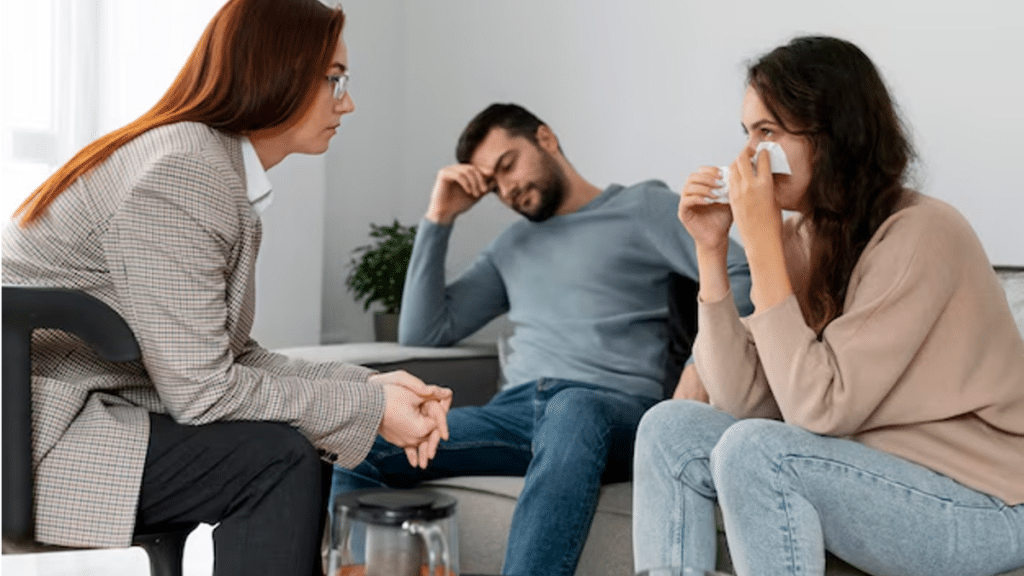Have you ever found yourself in the middle of a session with a couple and wondered, “Is there a more effective way I could support them right now?”
It’s a question that many therapists ask themselves, especially when they’re still growing into their role. Whether you’re newly trained or already years into your practice, the desire to improve is what leads to mastery. One of the best ways to keep developing your skills as a couples therapist is through consulting.
Consulting creates a space where growth becomes natural. It allows you to reflect, refine, and strengthen what you already do well while also exploring new ideas and tools to bring into your sessions. It’s not just about solving a challenge, it’s about continuing to evolve with confidence and clarity.
Let’s take a closer look at how consulting helps therapists move from early practice to true mastery in the couples counselling field.
The Learning Doesn’t End After Training
Your initial training gives you a strong foundation. You learn frameworks, techniques, and strategies, and even marriage counselling calgary can help couples communicate better, reconnect emotionally, and navigate conflict. But training is only the starting point. Once you begin working with real couples, you quickly realize that each session brings new dynamics, questions, and moments that don’t always follow the textbook.
This is where consulting makes a big difference. It helps bridge the gap between what you’ve learned and how it plays out in real time. A consultant can guide you in applying your training in ways that feel natural, effective, and grounded in who you are as a therapist.
How Consulting Builds Confidence and Skill
The more you practice couples counselling, the more you’ll notice patterns, nuances, and opportunities to deepen your work. Consulting supports this process by giving you a space to process those discoveries.
In consulting sessions, you might explore how to structure your sessions more effectively, how to respond to emotional escalations, or how to gently guide couples through sensitive topics. You can bring in real situations (with confidentiality, of course) and get specific feedback that’s encouraging and useful.
Consultants also help you notice strengths you might not even realize you have. They can point out moments where your intuition served you well or your language helped a couple shift into connection. Over time, this feedback strengthens your confidence and helps you feel more centered and prepared in each session.
As you build your skill set, you’ll also find your rhythm and style. Consulting supports that process by helping you stay true to your voice while expanding your toolkit.
The Power of an Outside Perspective
One of the most helpful parts of consulting is simply having someone else to talk to who understands the work. As therapists, we hold space for others every day, but it’s just as important for us to have space held for us.
An experienced consultant can often see things we may miss when we’re in the middle of the therapeutic process. They offer a new lens, asking thoughtful questions and sharing observations that gently open up new possibilities.
This kind of guidance can be especially helpful when you’re integrating specialized approaches, such as emdr therapy, into your couples sessions. A consultant can support you in blending these techniques in a way that supports both emotional healing and relationship growth.
Practical Benefits of Working with a Consultant
As you continue to work with a consultant, you’ll likely notice several positive outcomes that support both your growth and your clients’ progress. Here are a few benefits that therapists often experience:
- Greater confidence in managing emotionally charged moments
- Clearer communication techniques to guide couples more effectively
- Stronger understanding of relational dynamics
- Helpful support when navigating complex or high-stakes situations
- Renewed energy and creativity in your sessions
These are just a few examples of how consulting helps move you forward—not because you’re doing anything wrong, but because you’re committed to doing your best work.
Consulting as a Professional Lifeline
Even the most experienced couples therapists benefit from consulting. It’s not just something for early-career professionals, it’s a tool that supports long-term sustainability and growth.
Consulting can also be a source of inspiration. When you connect with someone who’s walked the path ahead of you, you gain insight not only into your current work, but also into what’s possible for your future. It’s a space where curiosity is welcome, and where your passion for helping others gets to keep evolving.
Many therapists find that consulting brings a renewed sense of purpose. It helps you stay grounded and steady, especially during busy seasons or when navigating particularly layered cases. It can also remind you of why you chose this work in the first place—because you care deeply about helping people connect, grow, and thrive.
Closing Thoughts
Mastery doesn’t come from pressure. It comes from practice, openness, and support. Consulting gives you all of that in a format that’s encouraging, flexible, and centered around you.
As a couples therapist, your ability to support others depends on your willingness to keep growing yourself. Consulting isn’t about fixing, it’s about building. It’s about refining your strengths, deepening your knowledge, and becoming more of the therapist you want to be.
